Hello there! We've all been there: eagerly waiting for a package that seems to have gone off on its own little adventure. Unfortunately, sometimes delivery attempts don't go as planned, leaving us in a bit of suspense. In this article, we're diving into the essential elements of an unsuccessful delivery attempt notice, so you'll know exactly how to communicate with your delivery service. Stick around to learn how to craft the perfect notification!
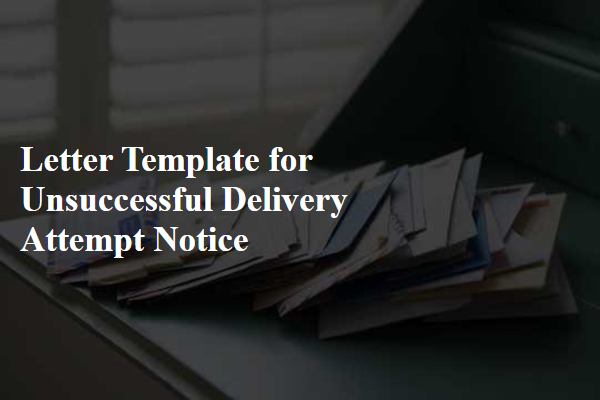
Clear contact information
A notification regarding an unsuccessful delivery attempt is essential for ensuring that recipients are informed about the status of their package. The notice should include vital contact information, such as the delivery service provider's phone number and email address, enabling customers to reach out for rescheduling options or inquiries. Specifics about the delivery attempt should indicate the date (e.g., October 15, 2023), time (e.g., 3:30 PM), and location (e.g., 123 Main Street, Springfield, IL), clearly highlighting any delivery restrictions. Additionally, instructions for picking up the package from a nearby facility (e.g., 456 Delivery Center Road, Springfield) should be effortlessly navigable, ensuring a streamlined process for completion of the delivery.
Reason for unsuccessful delivery
Delivery attempts can fail for various reasons. Common causes include the absence of the recipient at the address, incomplete or incorrect shipping information, or restrictions, such as no access to the delivery location. High-traffic areas may complicate scheduling, causing delays and rescheduling needs. Weather conditions, like heavy rain or snow, can impede safe deliveries. Additionally, special instructions specified by the sender may not be followed, resulting in unsuccessful deliveries. Proper communication between the sender and recipient can mitigate these issues, ensuring accurate information is available for successful delivery.
Next steps for rescheduling or pickup
Delivery attempts often encounter challenges, leading to unsuccessful notifications. In such cases, customers typically receive a notice outlining next steps for rescheduling or pickup of their packages. The notice may specify a designated timeframe (often within 3-5 business days) to arrange a new delivery date. Additionally, customers might be directed to a website or customer service number for immediate assistance. Options may include picking up the package at a local distribution center or scheduling a redelivery at their convenience. Relevant identification numbers, like tracking IDs, can also be provided for easier reference. This process aims to enhance customer satisfaction and ensure successful delivery completion.
Reference or tracking number
An unsuccessful delivery attempt notice can be critical for ensuring packages reach their intended recipients. The notice typically includes essential details such as the reference or tracking number (unique identifier for tracking shipments), the date of the delivery attempt (specific date and time when the attempt was made), and the address (location where the package was meant to be delivered). Furthermore, it often provides instructions for rescheduling delivery or picking up the package from a local service center (a nearby location for retrieving undelivered items), which could include hours of operation or required identification documents. Additionally, a customer service contact (phone number or email for inquiries) is usually offered for any questions or further assistance regarding the delivery process.
Instructions for ensuring future success
A failed delivery attempt can cause inconvenience for recipients expecting important packages. It is crucial to accurately provide delivery information, including street address, apartment number, and any access codes specific to gated communities or secured buildings. Couriers often utilize GPS technology; incorrect address details can result in missed deliveries. For future success, tracking number visibility helps recipients monitor their package in real-time, allowing them to be present during scheduled delivery windows. Furthermore, utilizing delivery instructions, such as specifying safe drop-off locations (porches, mailboxes, or front office), can enhance delivery efficiency significantly, reducing the likelihood of further unsuccessful attempts. Additionally, rescheduling deliveries through provider platforms can offer flexibility, ensuring packages reach their intended destinations promptly and securely.

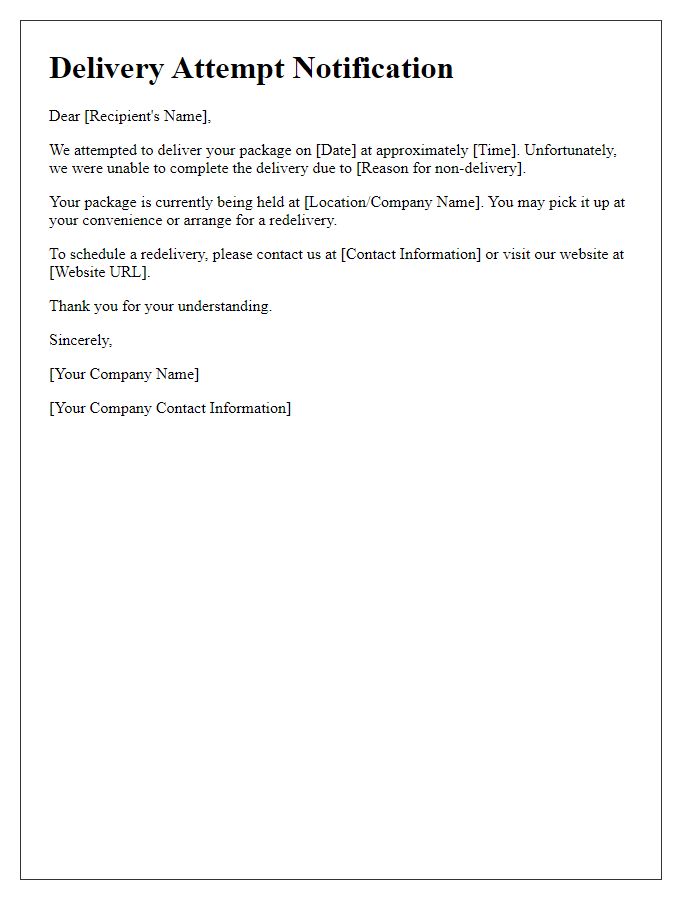
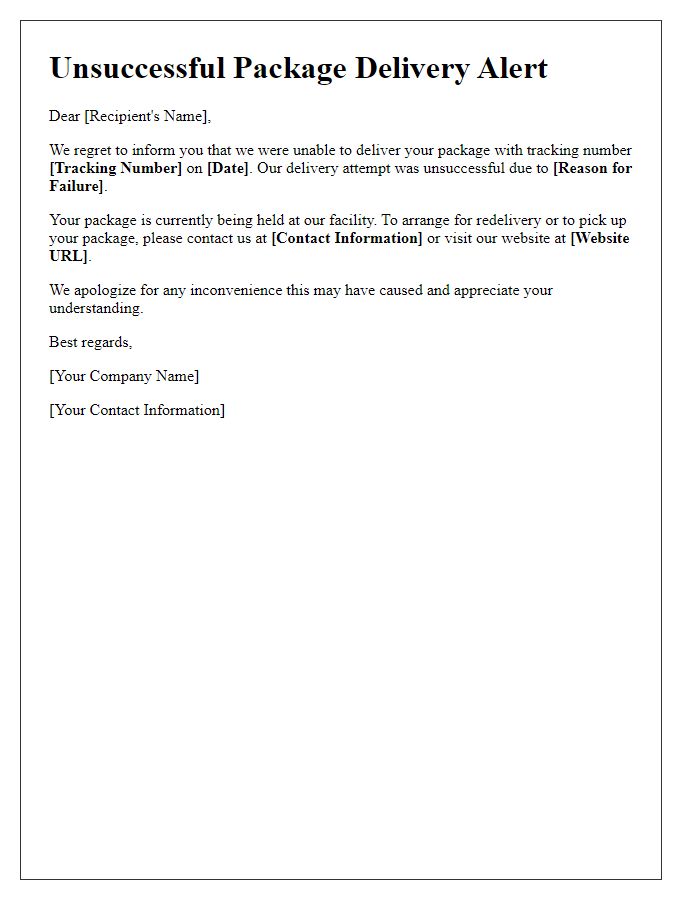
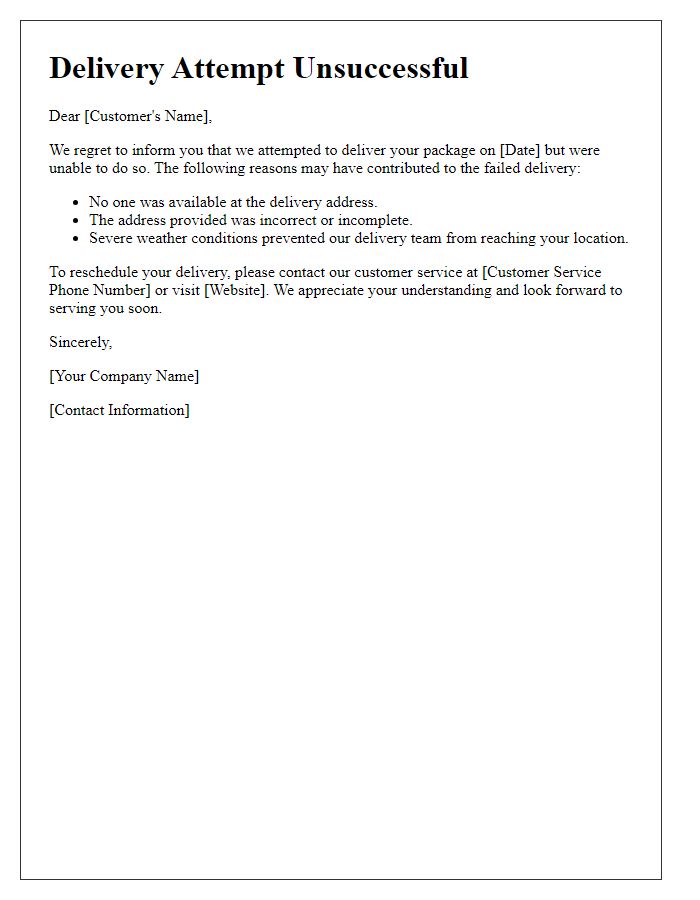
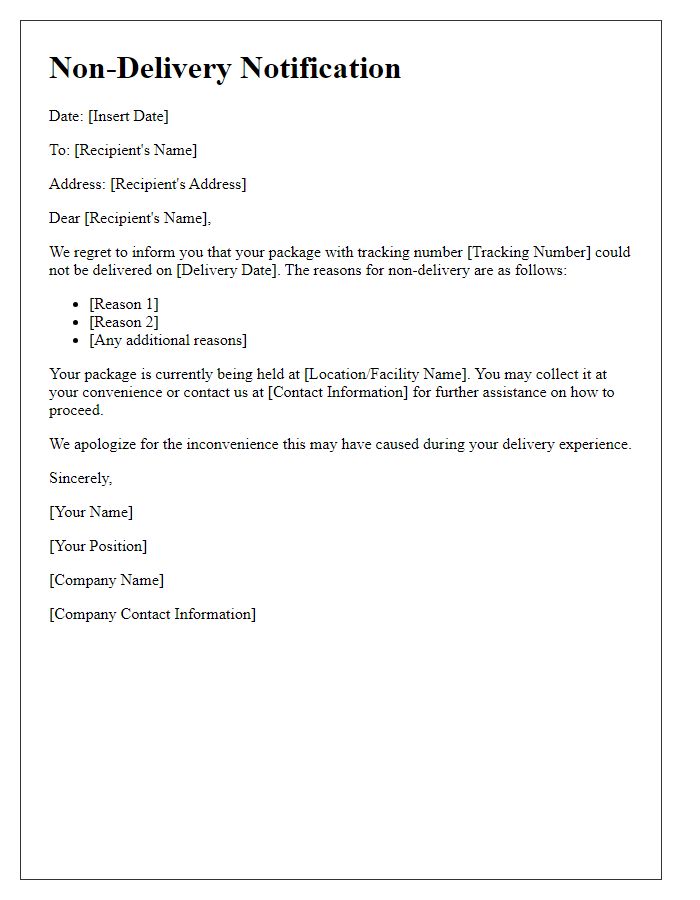
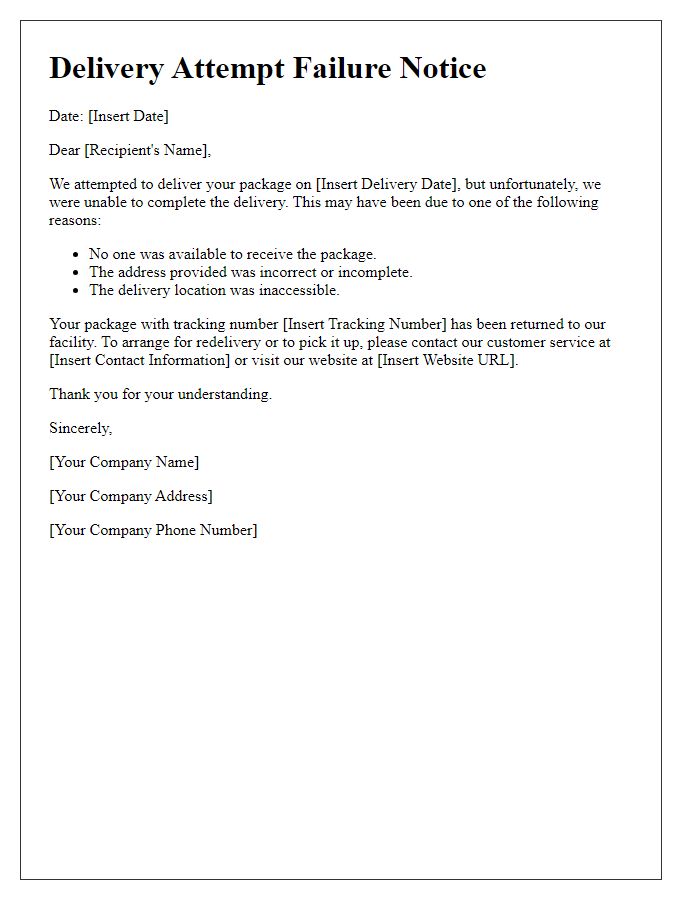
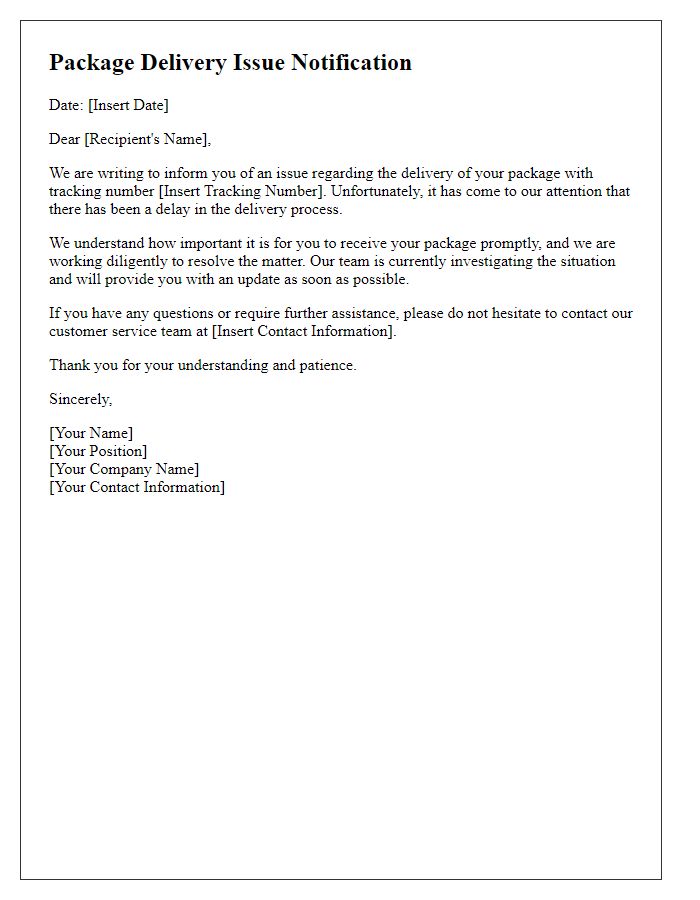
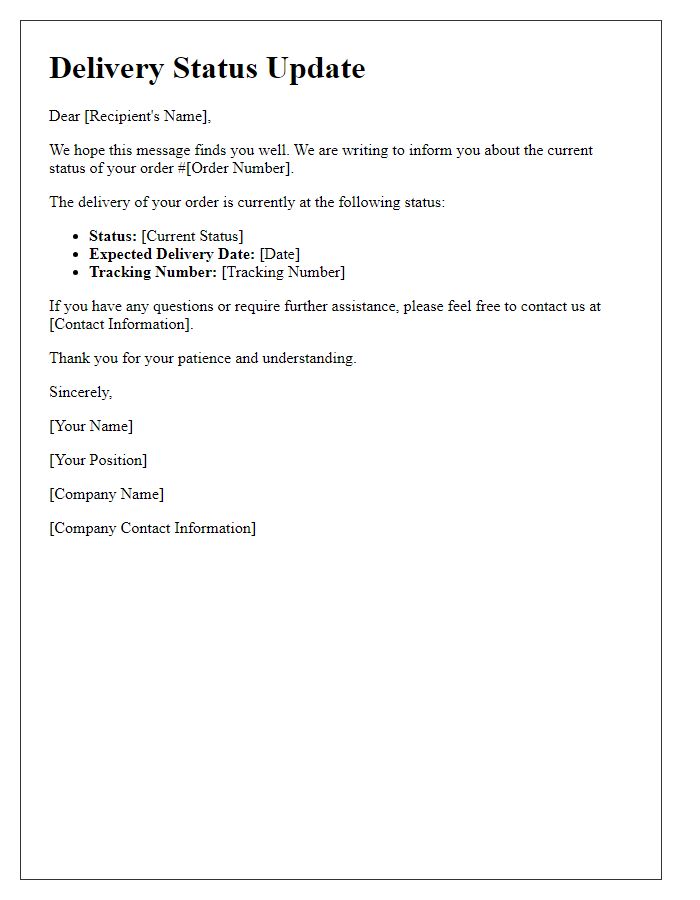
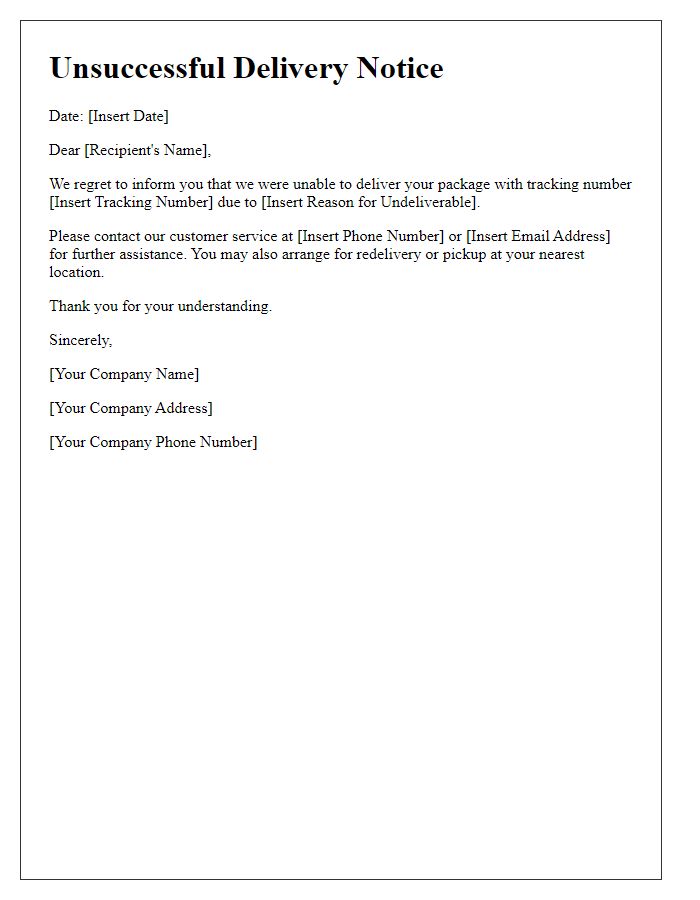
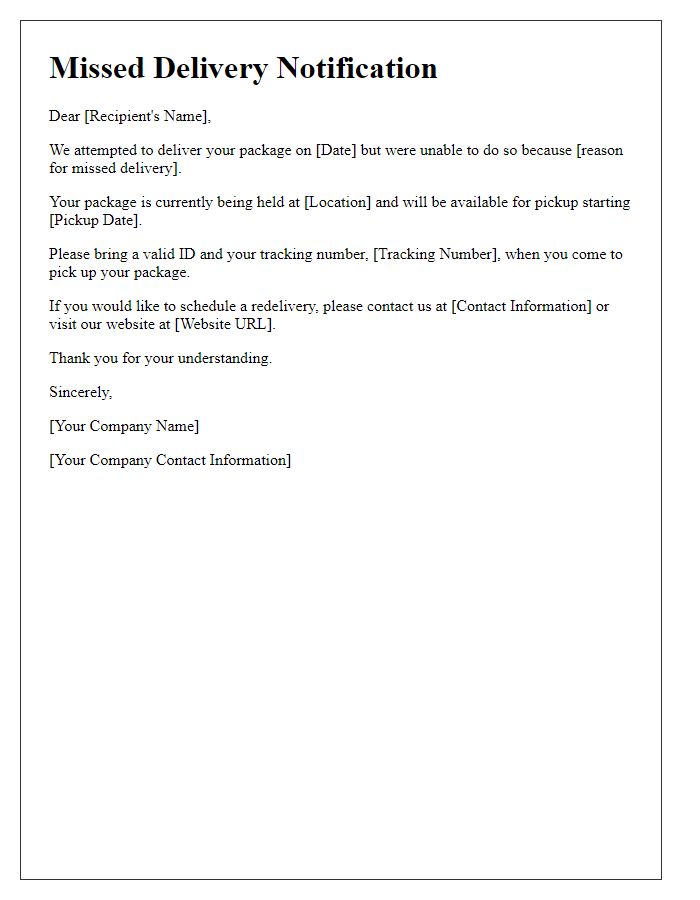
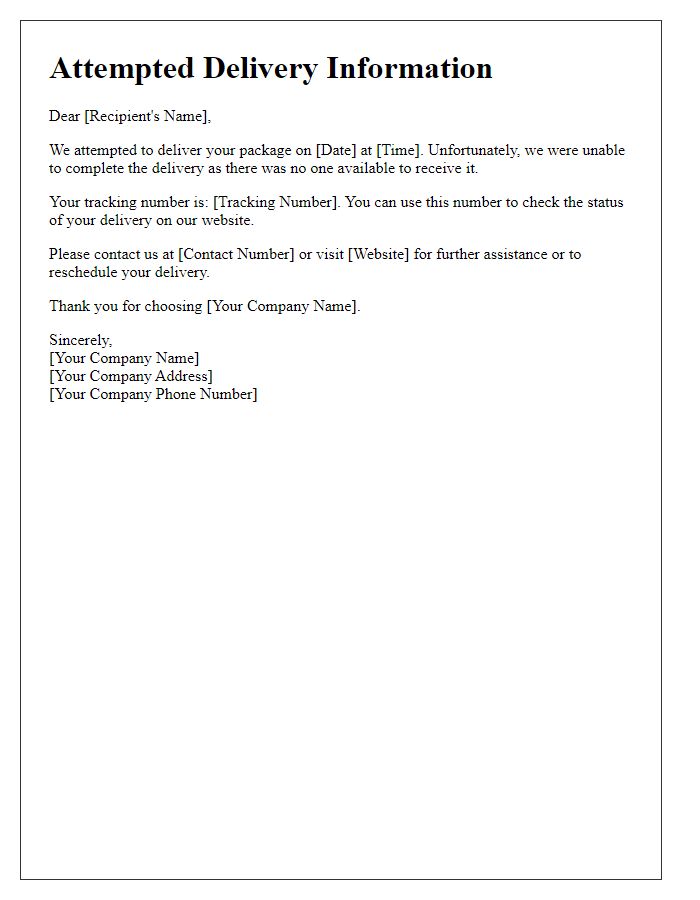

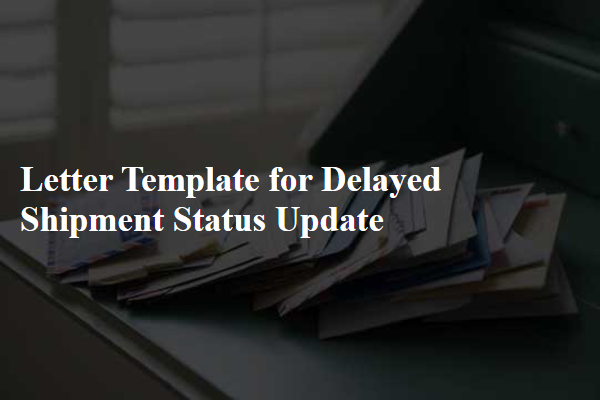
Comments